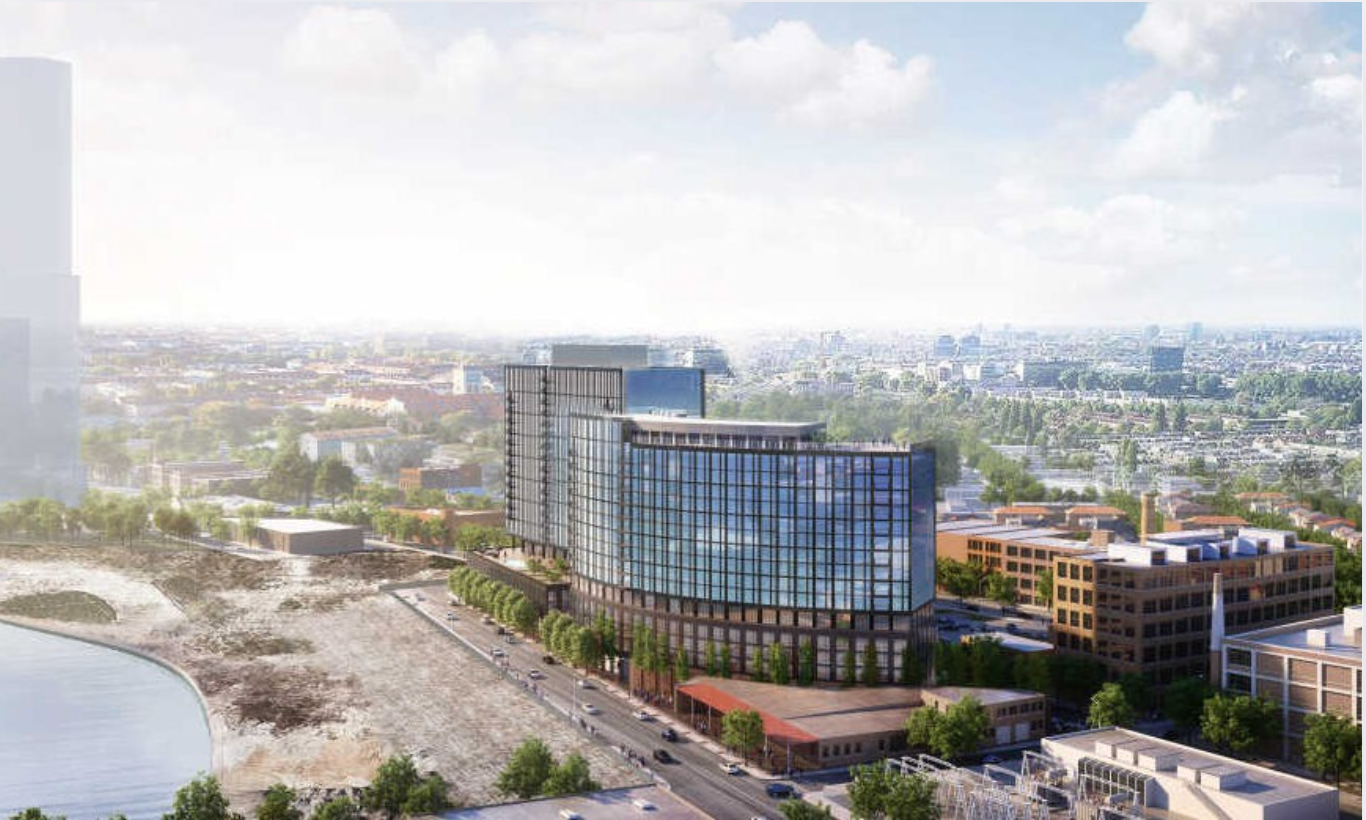Tensions were high when the Chicago City Council failed to accept or reject Sterling Bay’s proposed new development earlier this month. The 25-story, two-tower project at 1840 N. Marcey St. would bring 615 housing units to Lincoln Park, and its future has remained uncertain for more than four years.
The measure was ultimately left off the City Council agenda on Dec. 11, which caused a stir in council chambers. “A fiery battle erupted,” according to Crain’s, as Ald. Scott Waguespack and Ald. Jason Ervin began shouting at one another.
Block Club Chicago also described “a combative exchange” between Waguespack and Mayor Brandon Johnson, who supports the development. Waguespack sought to force a vote, although he withdrew that motion after a brief recess.
The delay came just two days after the Zoning Committee voted to block the development. While that committee vote does not halt the development entirely, it means the project now carries a “do not pass” recommendation: a recommendation which was expected to come into play on Dec. 11.
It did not — and Zoning Committee Chair Ald. Walter Burnett defended his decision to put off a final vote. “We wanted to give the developer and the alderman the opportunity for a little more time to discuss the issue, and hopefully the city can capture those dollars that we sorely need for our budget, not just now, but in the future,” he said.
The Marcey Street Development
Waguespack, who represents the 32nd Ward where these towers would rise, has long fought Sterling Bay’s proposal.
“These buildings — according to the opinion of neighborhood groups and neighbors — are too dense and too tall and will add to the dense traffic in the area,” said a statement from Waguespack, read at the Dec. 9 Zoning Committee meeting. (He was not present in the room.) The Zoning Committee was in support.
On Dec. 11, though, it did not matter. “My goal for today was to follow the rules of procedure and not create a slippery slope … where a chairman would now be able to just willy nilly remove an item from the table whenever they want,” Waguespack said, shortly after relenting on his bid to force a vote.
“We remain interested in engaging with Ald. Waguespack in a constructive dialogue that will bring this project to life,” Sterling Bay Managing Director Fred Krol said in a statement. “It is a historic level of affordable housing units, 3,200 construction jobs, multimillion dollars in traffic mitigation measures and significant tax revenue for our city at a time it is desperately needed.”
Sterling Bay is also seeking a “low-affordability community” designation for the site, which would offer property tax breaks as long as 20% of the total units — 124 in this case — are designated as affordable. (As in, affordable to a household earning 60% of the area median income.)
If Sterling Bay fails to secure this label, the city’s minimum designation of 15% affordable will still apply. Additionally, if no vote is held by Dec. 25, Sterling Bay can request the designation from the Department of Housing, since Christmas day marks six months since the development was first introduced to the Zoning Committee.
It’s also worth noting that the 1840 N. Marcey St. site is just across the river from Lincoln Yards, Sterling Bay’s mixed-use master plan which, after five years, sits mostly empty. The company has completed one building there and is seeking new investors.
General zoning delays
Johnson’s desire to spur along the Marcey Street development comes during a slow period for Chicago development. An August study by the Urban Institute found that the number of households in Chicago increased 14% between 2010 and 2022, while the housing stock rose just 6%.
A recent analysis by Chicago Magazine cites this data, identifying Chicago’s zoning laws as a major culprit in stagnant development. According to the article, in 2023, 41% of Chicago’s land was zoned for single-family residential use only. Changing this requires many steps involving the Department of Planning and Development, public meetings and Zoning Committee approval — all before a full City Council vote — not to mention the practice of aldermanic prerogative.
Historically,Chicago mayors defer to alderpeople when it comes to building local developments. This is known as aldermanic prerogative. Although Johnson claims he does not intend to override this tradition, he’s repeatedly expressed desire to speed up the overall zoning process and court development, as embodied in his “Cut the Tape” report.
Following the heated City Council meeting, Waguespack said pressure from Johnson is “whittling down aldermanic
prerogative.”
Regardless, current procedures have left the Marcey Street development without a clear path forward and, if the conflict on Dec. 11 was any indication, things may be coming to a head.
